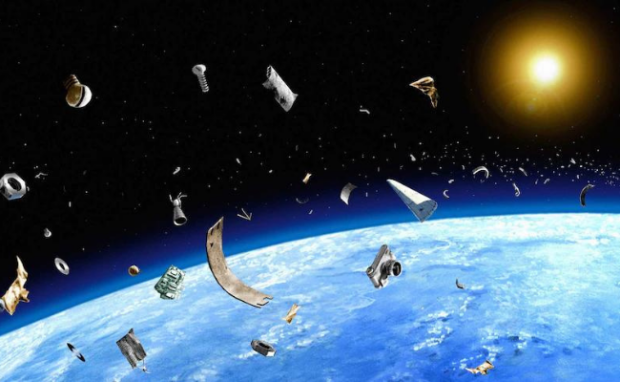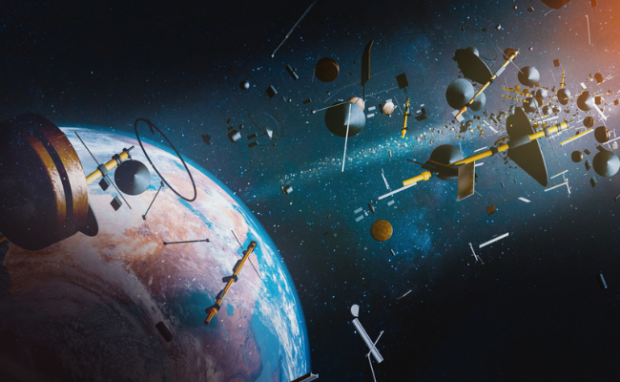Space is full of junk, and nobody will clean it
Space missions usually inspire thoughts of astronauts floating in the great expanse and rockets speeding into distant planets. However, you probably never considered the garbage we leave in outer space. Believe it or not, The Conversation news outlet says we’ve accumulated roughly 200 tons of space junk, and nobody wants to clean it!
It’s hard to think the Moon is a part of Earth, so most don’t care what we do on its surface. However, our planet’s oldest satellite affects various global conditions, such as the worldwide ebb and flow of tides. Moreover, space garbage is close enough to form larger chunks that could crash into the Earth without warning!
Let’s delve deeper into this out-of-this-world topic by discussing how much space trash we’ve accumulated and the objects they contain. Then, I will explain the risks of excessive space junk and why nobody wants to dispose of them properly.
What’s up with our space junk?

Photo Credit: abc.net.au
The Conversation says our recent space missions have been amazing milestones for humanity. However, that increased activity left so much debris on the Moon and the Earth’s orbit.
For example, the publication says we’ve left over 50 rocket boosters and several miscellaneous objects in outer space, totaling 200 tons! The Royal Museums Greenwich listed the following items found on the Moon:
- 96 bags of human waste
- A family picture featuring Apollo 16 astronaut Charles Duke
- Numerous flags
- The ashes of US geologist Gene Shoemaker
- A tiny art gallery named “Moon Museum” featuring miniaturized works of art from Andy Warhol, Claes Oldenburg, and other artists
- The “Fallen Astronaut” aluminium sculpture by Belgian artist Paul Van Hoeydonck
- Moon buggies and other lunar equipment
- Golf balls, a hammer, and a feather
You may also like: NASA Mars helicopter succeeds first flight
The Earth’s orbit also has clutter, including 23,000 objects larger than four inches or 10 cm and 100 million pieces of debris larger than 0.04 inches or 1 mm. However, nobody is in charge of clearing that garbage.
What are the risks of space junk?

Photo Credit: earth.com
If you’ve ever watched the Disney movie “WALL-E,” you might remember a scene illustrating space junk’s dangers. One scene showed the robot protagonist latching onto Eve’s spacecraft.
It crashes into several satellites, revealing the Earth’s atmosphere covered in near-orbit garbage. Many would likely crash and burn if our satellites and rockets collided with space trash.
If debris gains speed, it could eventually move at roughly 15,000 mph or 24,140 kph, 10 times faster than a bullet. After all, Isaac Newton’s first law of motion states, “An object will not change its motion unless a force acts on it.”
Outer space is a vacuum with little to no obstacles, enabling moving objects to continue and eventually gain speed. The Conversation says a paint fleck may gain enough speed to puncture spacesuits or destroy sensitive electronics.
In 1978, NASA scientist Donald Kessler described another dangerous scenario from space trash. He said multiple pieces of space debris may aggregate, eventually making it impossible to have satellites in orbit.
You may also like: NASA robot will oversee oil rigs
Experts call this scenario the Kessler syndrome. Also, Jonathan McDowell told Space.com, “It’s going to be like an interstate highway, at rush hour in a snowstorm, with everyone driving much too fast.”
Space junk could also endanger future Moon missions. It doesn’t have an atmosphere to burn interstellar debris, so piles of debris may crash into future lunar infrastructure and harm astronauts.
The lack of globally accepted restrictions means nobody is responsible for cleaning the Moon and our orbit. After all, it’s difficult to assume they’re within national interests if they are thousands of miles away from us. Suppose we don’t clear that debris. Everyone may be unable to launch more space expeditions.
Conclusion
Space exploration leaves more garbage in our orbit and the Moon. Soon, they could pose serious threats to astronauts, rockets, satellites, and everyone on Earth.
Perhaps future space missions could minimize their waste or bring trash when returning home. Nevertheless, we need a proper way of disposing of space junk.
After all, more countries like the United States want to build lunar infrastructure and enable humans to live on the Moon. Learn more about the latest digital trends at Inquirer Tech.